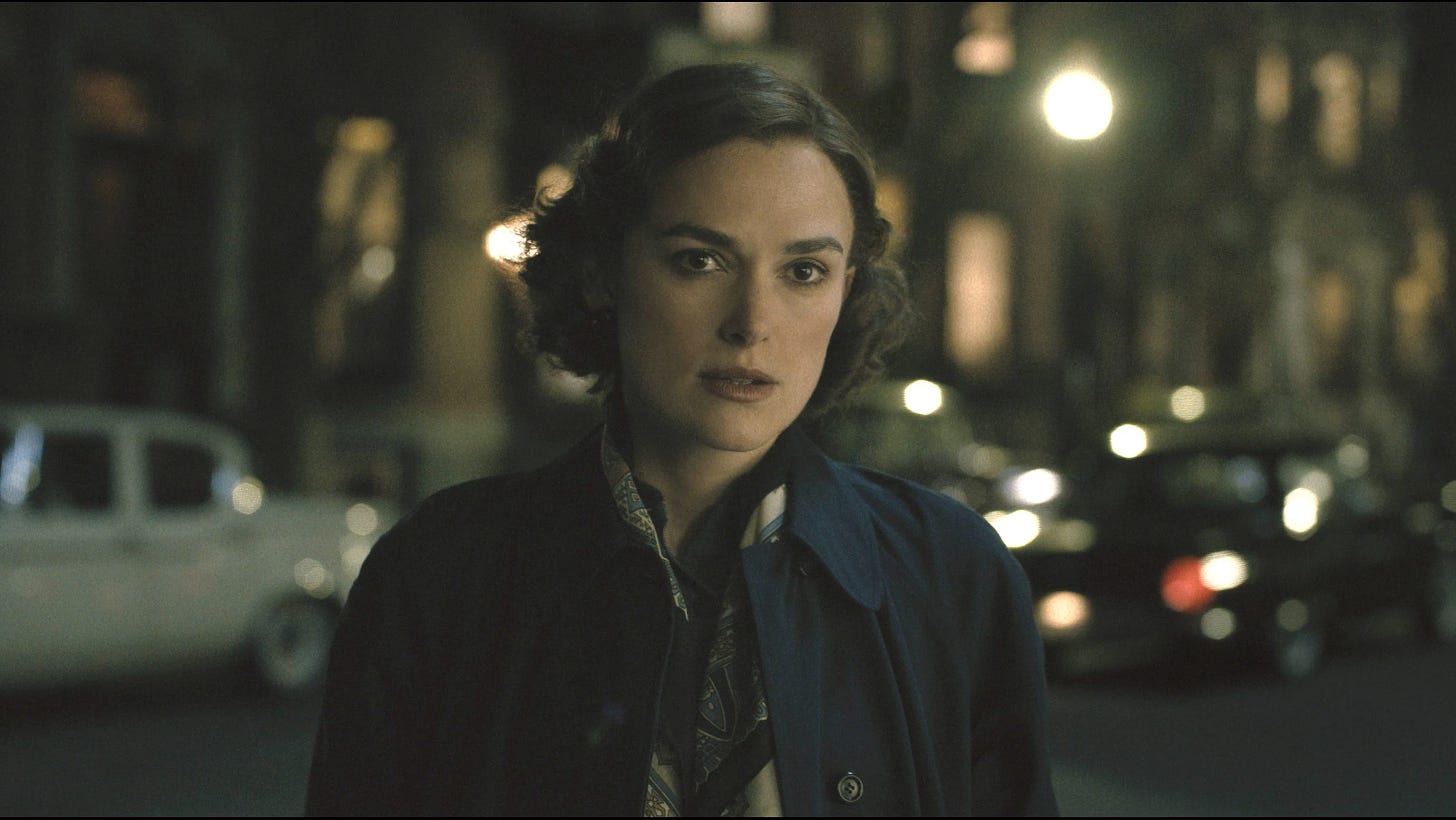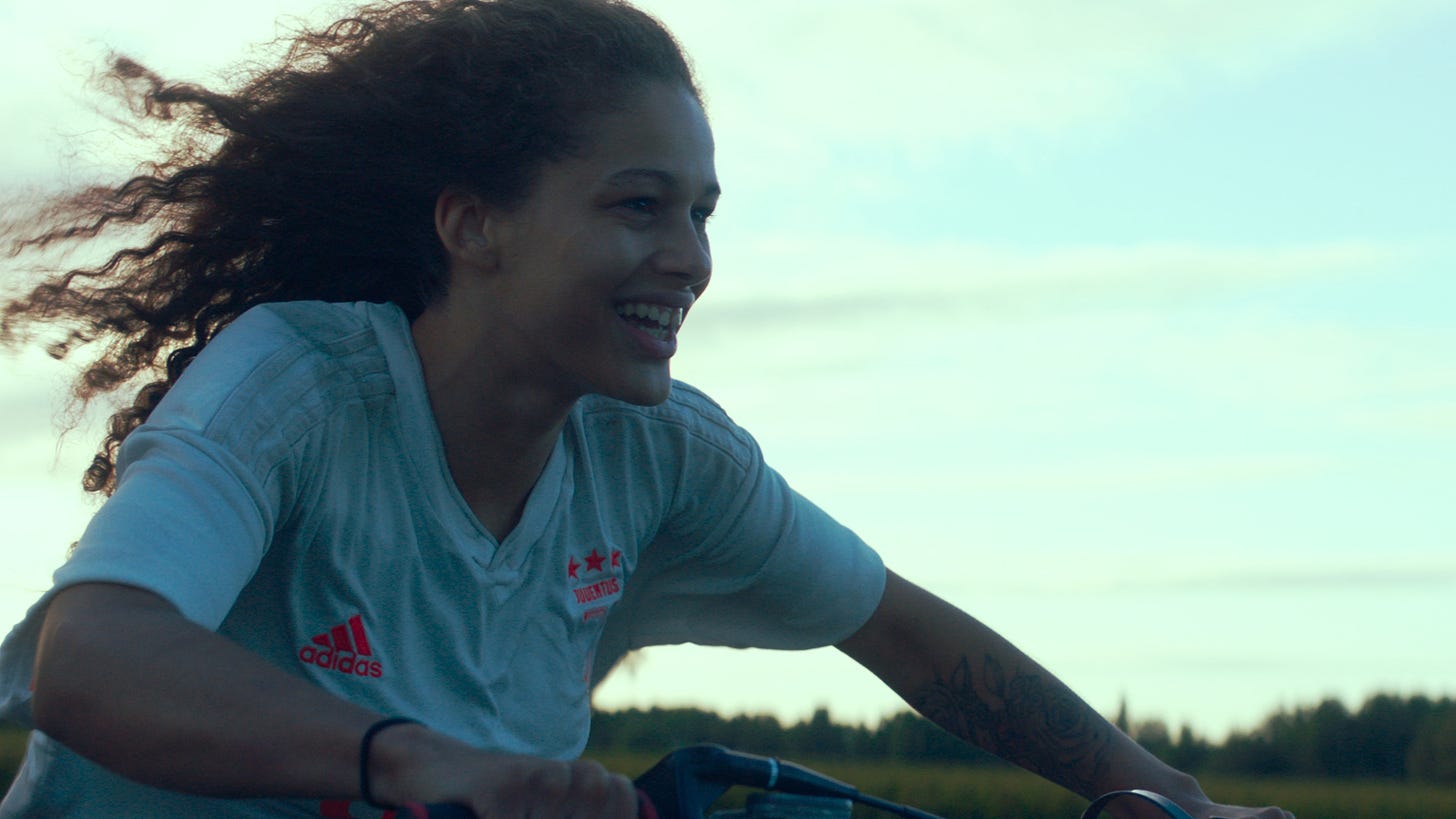In Review: 'Boston Strangler,' 'Rodeo'
This week, a notorious '60s serial killer investigation gets the B-grade 'Zodiac' treatment and a French Cannes-winner explores a motocross underworld.
Boston Strangler
Dir. Matt Ruskin
113 min.
One of the most important parts of making a David Fincher-style serial killer thriller—really the only part that matters—is being David Fincher. Accept no substitutes.
That’s the lesson of Boston Strangler, a store-brand imitation Fincher that tries to give the Zodiac treatment to another true journalistic investigation of a serial murder spree that terrorized a major city. That treatment, courtesy of writer-director Matt Ruskin (Crown Heights), mostly involves an oppressive gray pallor that settles over the film like a skin condition, characters who devote themselves to a case that others want dropped, and an alternative theory about the killer’s identity that doesn’t necessarily jibe with the official story. There’s also a newsroom mail cart point-of-view shot that’s probably intended as a tip of the hat to Fincher, given how unmistakable the template turns out to be.
And yet, there’s not a single sequence that wouldn’t feel out of place in a gussied-up television procedural: Nothing like the Fourth of July ambience, eerily undercut by Donovan’s “Hurdy Gurdy Man,” that opens Zodiac, or that sense of pervasive terror that settled over San Francisco during the killer’s most active period. In laying out the case, Boston Strangler is merely straightforward, not as pathologically detailed as Fincher in laying out the facts, as if there was no separation between the director and the characters who dove down every possible rabbit hole. Obsession is the juice of Zodiac, replaced here by a more earnest, leaden treatment of the misogyny at play within and around the case.
After teasing a murder in Ann Arbor in 1965, past the period when the crimes were committed and the alleged perpetrator brought to justice, Boston Strangler flashes back three years to a Boston city newspaper where Loretta McLaughlin (Keira Knightley) is looking to get off the lifestyle desk. While her male colleagues work stories on the crime beat, McLaughlin is stuck doing product reviews of Sunbeam toasters, all while eyeing the headlines for an angle. She finally finds a good one when she discovers connections between three strangulation deaths of elderly women and persuades her editor Jack MacLaine (Chris Cooper) to follow through on the scoop. The impact of the story is predictably seismic, and as it continues to develop, McLaughlin partners up with Jean Cole (Carrie Coon), a more seasoned and thick-skinned reporter.
There are all sorts of potentially compelling angles to Boston Strangler, like the paper’s efforts to personalize its “lady reporters” by putting their pictures next to their bylines or the political forces that favor expediency over justice. Yet Ruskin grinds out a by-the-numbers investigative tick-tock that wouldn’t be out of place on cable—or, you know, Hulu—and clumsily ladles on some messaging about sexism that feels reductive both as a snapshot of workplace misogyny and an indictment of widespread sexual violence. The case itself would suggest these themes, if it were told well. — Scott Tobias
Boston Strangler will be available to Hulu subscribers tomorrow.
Rodeo
Dir. Lola Quivoron
108 min.
As Rodeo opens, Julia (Julie Ledru) is in a panic-fueled state of rage, and with good reason: someone has stolen her bike. A young woman living in the housing projects on the far fringes of the Paris suburbs, she lives a life of no clear trajectory and fraught family ties, but with an intense focus: She lives for motocross bikes. More specifically, she lives for “urban rodeos,” the illegal gatherings of stunt-performing dirt bike enthusiasts that have become a fixture of French culture and/or a public safety hazard (depending on who’s describing them). For Julia, this is not a sustainable condition. So she answers an ad online and arrives to check out the bike, telling a seller skeptical of her skills “I was born with a bike between my legs.” After giving him her purse filled with rocks as a deposit, she takes off with a smile on her face.
Julia can’t be without a bike, but any resemblance to Lola Quivoron’s feature debut—which won the Coup de Coeur prize at last year’s Cannes—and a canonical classic ends there. Like its protagonist, Rodeo isn’t particularly concerned with the ethical questions or social problems at the heart of Bicycle Thieves. For Julia, there’s no shame in living this way; it’s a matter of identity and any other concerns are secondary. That sense of identity expands a bit when she falls in with the B-Mores, a group of rodeo participants who reluctantly bring her into their circle and let her sleep in their garage.
That’s largely because she’s useful, bringing with her a batch of useful, if criminal, new ideas. The B-Mores sustain their passion through robbery schemes overseen by their leader Domino (Sébastien Schroeder), who holds a tight grip on the group — and on his wife Ophélie (co-writer Antonia Buresi) from his jail cell. Julia finds life with the B-Mores to be a preferable but perilous existence. Some members don’t want her there and do little to hide their threats. She grows close to Ophélie and her son Kylian (Cody Schroeder), but Ophélie’s fear puts up boundaries. Then there’s the crimes themselves, which, partly because of Julia’s ambition, grow increasingly dangerous.
Quivoron mostly keeps the camera close to her protagonist’s side and the handheld approach both allows her to capture the chaos of Julia’s moment-to-moment existence and the thrills of some truly stunning stunt work. That makes the occasional variations on the style all the more effective, like lyrical imagery that captures the highs Julia chases each time she mounts a bike or a rare moment of peace as Julia, Ophélie, and Kylian take in a sunset or a handful of scenes that suggest the supernatural intruding into the mundane world that seem out of place until, in a moment best left unspoiled, they don’t. Quivoron’s film sometimes plays more like a series of meaningful moments than a propulsive narrative, vehicular mayhem and all. But that feels purposeful. Some lives may not have definition but that doesn’t mean they lack meaning. —Keith Phipps
Rodeo opens in select theaters tomorrow.









I should note that family obligations kept both Keith and myself from seeing SHAZAM 2 for review this week. For this, we apologize to you and thank our families.
Accept no substitutes for David Fincher?
Memories of Murder has entered the chat.